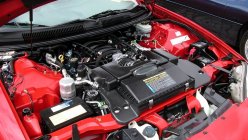In the quest to make cars run faster yet more efficiently, consumers have turned to additives as sort of a quick fix; after all, nothing could be easier than just opening a bottle of fuel enhancer and emptying the contents right into the fuel tank.
These products have been in the market for years, which begs the question: which of these additives really work?
Every car has the potential to run at its best, but sometimes this is hampered by a lack of access to good octane fuel. Or you were unlucky enough to get a batch of bad gas at the pump. Probably your car is a bit of a snob, refusing to run on regular gasoline.
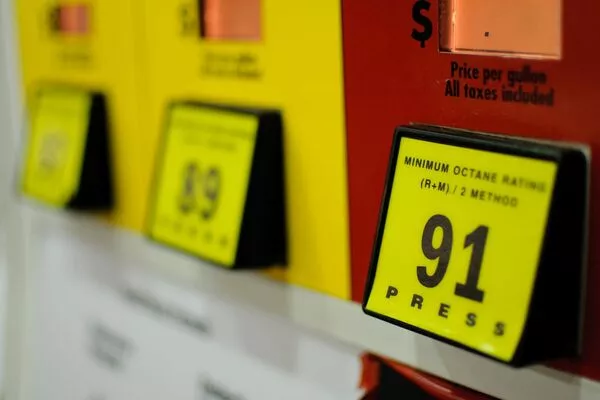
Octane boosters increase the octane rating of the fuel in your car
Octane boosters solve these issues. These are chemicals that increase the octane rating of the fuel that’s already sitting in your car’s gas tank, providing certain benefits to your engine in terms of performance and efficiency.
If you’re looking for ways to make your car run better, this Philkotse.com article will help you determine if an octane booster is what you really need.
1. Understanding octane boosters
As mentioned, an octane booster is a fuel additive that increases the octane rating of your fuel. The octane rating (or usually known as octane number) is a standard measurement of a gasoline fuel’s performance; the general rule of thumb is that the more significant the octane number, the more compression the fuel can resist prior to detonation (ignition).
Although there are no technical restrictions governing their use in all vehicles, their benefits are observed the most in higher-end cars i.e. those that have been tuned to take advantage of the performance gains.
With octane boosters, you’ll notice an increase in power and efficiency. It’s no different from treating your engine to higher-octane fuel that burns better during combustion, only that you don’t have to switch from your favorite brand.
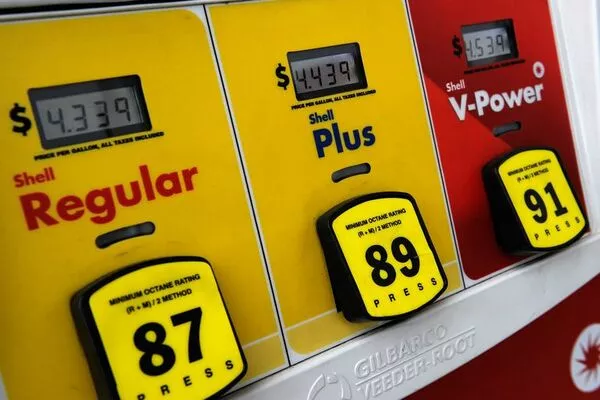
Using fuel that's below the recommended octane rating might cause your engine to knock
These additives work by using ingredients that prevent the onset of engine knock, whether during ignition or pre-detonation; this effectively raises the fuel’s octane rating.
Some of these anti-knock additives include MMT (Methylcyclopentadienyl manganese tricarbonyl), ferrocene, aromatic alcohols (toluene, xylene, benzene) and ethanol.
The gasoline octane rating for your car depends on a number of factors, such as the ratio of engine compression, the engine’s spark timing, and the temperature controls of your engine.
Car manufacturers typically specify the recommended octane rating for their vehicles and going below that standard leaves your engine susceptible to engine knock.
2. The benefits of octane booster
The current unit used on a gasoline’s octane rating is RON or Research Octane Number. Newer engines these days are engineered to use 91, 95, or 98 RON. Engines that run on 100 RON are typically those found in high-performance applications such as race cars.
Since newer vehicles require higher octane, using fuel that is below 91 RON is bound to cause problems, mainly with the presence of contaminants and the overall lower quality of the fuel than the manufacturer specified. Prolonged exposure to lower-grade fuel might lead to problems with the engine over the long term.

Performance cars typically use engines that run on 100 RON
Many modern engines are designed to switch to a lower power phase to protect itself against wear, but this affects both performance and fuel economy. Increasing the RON index helps the engine avoid the additional strain, keeping it running within its ideal operating conditions, and cleans the fuel system.
>>> Read more: 6 steps to increase the power of a four-cylinder car.
3. Choosing the ideal octane booster
A smorgasbord of octane booster brands in the market all claims to be the right one for your car. Below is an extensive criterion that you can use to evaluate the ideal product that’s best for your engine.
Performance
An important aspect is how much the additive can raise the fuel rating. Many octane booster brands actually quantify this by indicating the figure on the packaging. Keep in mind that 1 RON is equivalent to 10 octane points, so if you’re looking for a boost of, say, 3 RON, the best product should increase the rating by at least 30 octane points.
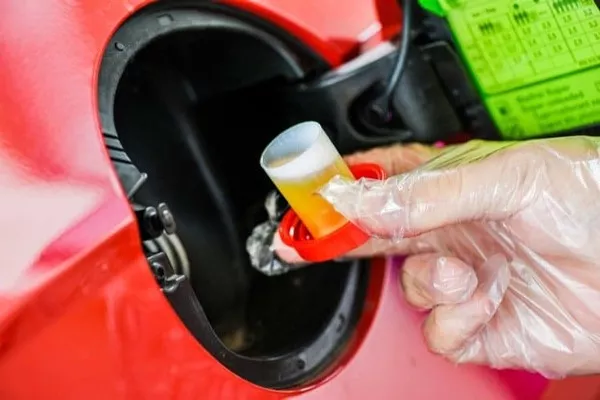
An important aspect is how much the octane booster can increase the fuel’s rating
Cost
A bottle of octane booster costs less than a full tank of gas, but if you use it often enough, the expense adds up. You’ll want to keep that into consideration when shopping around or deciding to settle on a particular brand of octane booster.
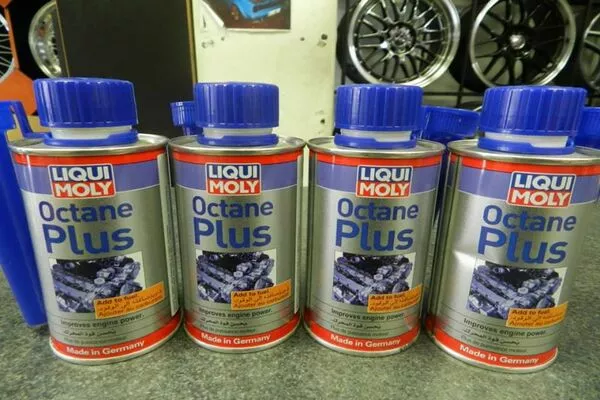
If you’ll be using the octane booster frequently, the cost adds up
Turbine-safe
If you are planning to (or currently) drive a vehicle with a turbocharged engine, it’s important that the octane booster is compatible with such a demanding powerplant.
Capacity
Two brands of octane booster can come in identically-sized bottles for instance, but this does not necessarily mean that they treat the same amount of fuel. Always read the label to find the product’s specific proportions.
Catalytic converter safe
Not all turbocharged engines can tolerate octane boosters, and the same can be said for certain catalytic converters as well. If you use an octane booster that’s not compatible with your car’s catalytic converter, it may adversely affect emissions and do more harm than good.
4. Do octane boosters really work?
While octane boosters are specifically formulated to raise the fuel’s octane rating, you’ll need to take a close look at just by how much they do so. They’re not cookie-cutter solutions that apply to just about any engine, so think twice before grabbing a bottle from the shelf and heading straight to the cashier.
Also, remember that octane boosters are not one-shot solutions; their use needs to be sustained over time for you to see appreciable benefits.

Also, octane boosters' use needs to be sustained over time for you to see appreciable benefits
Not all of these products are going to live up to the hype; similarly, not all vehicles necessarily benefit from these performance-enhancing additives.
Sometimes, the best way to improve your engine can’t be found in some miracle bottle, but by exercising due diligence in maintaining your car and being meticulous about the fuel that you put in.
Recent posts
- 7 reasons why fuel systems don’t need additive or adjustments Jul 22, 2019
- 4 things you need to know about engine fuel injection Feb 25, 2021
- Ethanol vs. Gasoline: Which type of fuel is the best for your car? Aug 16, 2022
- What are Fuel Additives and Do They Really Work? Nov 02, 2018
- 10 simple ways to save fuel without driving less Aug 28, 2017


